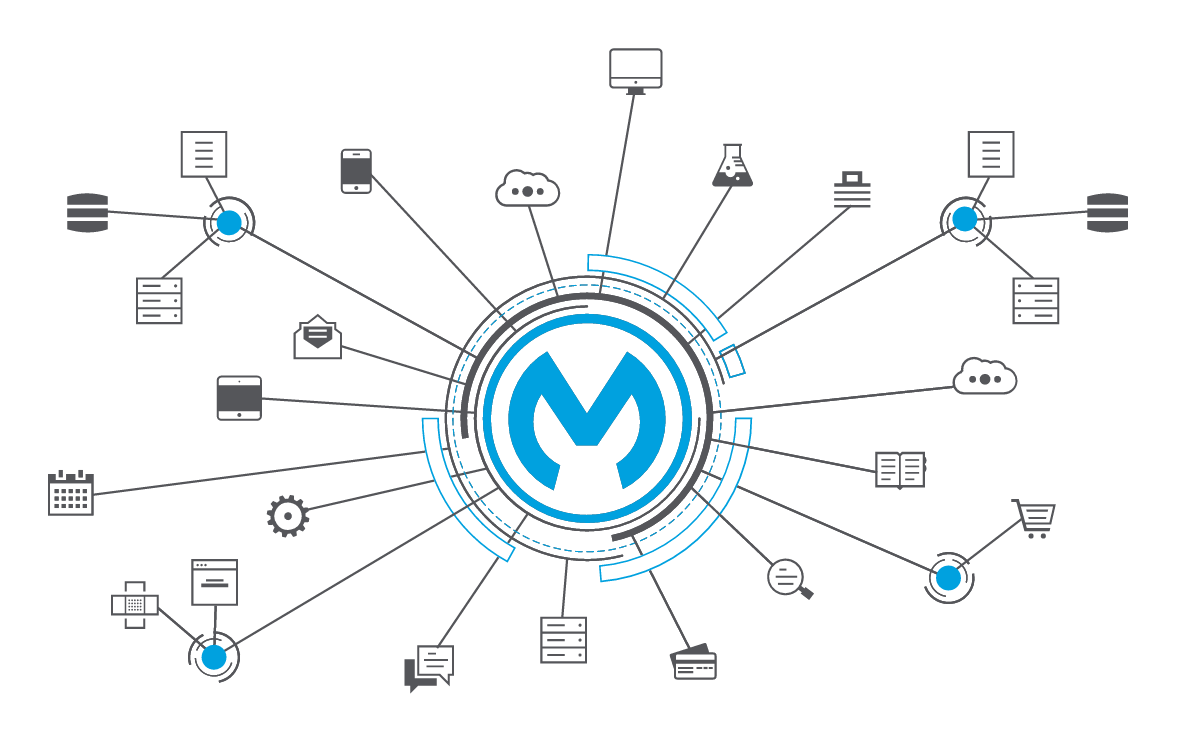Key Predictions for File Transfer in 2025
 Every new year brings a fresh opportunity to dust off the crystal ball and share our key predictions for file transfer. With valuable contributions from leading file transfer specialists, global vendors, and trusted partners, what can we expect from Managed File Transfer in 2025?
Every new year brings a fresh opportunity to dust off the crystal ball and share our key predictions for file transfer. With valuable contributions from leading file transfer specialists, global vendors, and trusted partners, what can we expect from Managed File Transfer in 2025?
 When it comes to Managed File Transfer (MFT), the fundamental questions stay the same. Questions around authentication, certificates, firewalls, encryption, the list goes on and on! We are, however, starting to see a shift in some of the enquiries we are receiving in the technical department here at Pro2col. A cautious customer is emerging.
When it comes to Managed File Transfer (MFT), the fundamental questions stay the same. Questions around authentication, certificates, firewalls, encryption, the list goes on and on! We are, however, starting to see a shift in some of the enquiries we are receiving in the technical department here at Pro2col. A cautious customer is emerging.
 Workflow automation refers to methods (and systems) that streamline the movement of tasks, documents, and data within work processes by automating them to fit with organisational processes and policies. This blog looks at five advanced workflow automation examples that Pro2col have recently delivered to enterprise customers.
Workflow automation refers to methods (and systems) that streamline the movement of tasks, documents, and data within work processes by automating them to fit with organisational processes and policies. This blog looks at five advanced workflow automation examples that Pro2col have recently delivered to enterprise customers.
 I’m sure that just like me, you have known technicians who have come up with often ingenious ways to address the day-to-day business challenges that we all encounter. Whilst it’s great to have these people around who can provide a quick solution and support it when needed, it’s far too easy to become dependent upon them...
I’m sure that just like me, you have known technicians who have come up with often ingenious ways to address the day-to-day business challenges that we all encounter. Whilst it’s great to have these people around who can provide a quick solution and support it when needed, it’s far too easy to become dependent upon them...
 What does Managed File Transfer look like in 2024? We asked our Pro2col experts and industry leaders to get out their crystal balls and share their predictions for MFT this year...
What does Managed File Transfer look like in 2024? We asked our Pro2col experts and industry leaders to get out their crystal balls and share their predictions for MFT this year...
 Do you send sensitive documents and files using email? Could you do more to protect those documents and files to ensure their confidentiality? These are just two of the more obvious questions which many an IT administrator and security officer are now asking their organisations, as the world and it's regulators become more focussed and stringent on data protection.
Do you send sensitive documents and files using email? Could you do more to protect those documents and files to ensure their confidentiality? These are just two of the more obvious questions which many an IT administrator and security officer are now asking their organisations, as the world and it's regulators become more focussed and stringent on data protection.
 Along with the rest of the world we've been experimenting with ChatGPT over the last couple of months. Having set ChatGPT a range of increasingly ridiculous tasks (culminating in a request for a sonnet about MFT) we decided to test just how capable
Along with the rest of the world we've been experimenting with ChatGPT over the last couple of months. Having set ChatGPT a range of increasingly ridiculous tasks (culminating in a request for a sonnet about MFT) we decided to test just how capable
 It may be obvious to some that FTP (File Transfer Protocol) is an insecure protocol; and that its continued use for transferring sensitive or personal is inappropriate. Yet, its use for that very purpose still continues according to Rapid7, creating an unnecessary risk.
It may be obvious to some that FTP (File Transfer Protocol) is an insecure protocol; and that its continued use for transferring sensitive or personal is inappropriate. Yet, its use for that very purpose still continues according to Rapid7, creating an unnecessary risk.
 ITAR requires that both defence materials and related technical data are handled by authorised parties and maintain a high degree of security. Managed file transfer solutions can help by guaranteeing a level of integrity, encryption and auditability during file movement workflows.
ITAR requires that both defence materials and related technical data are handled by authorised parties and maintain a high degree of security. Managed file transfer solutions can help by guaranteeing a level of integrity, encryption and auditability during file movement workflows.
 IBM Sterling is one of those solutions which feels like it has been around since the beginning of the earth and for must customers of the solution, they have been using for just as long. Handling critical file movements in the company network, few want to touch it for fear of severe disruption. However, if being reviewed, would likely be pulled up on a number of shortcomings which once upon a time seemed trivial but today are problematic.
IBM Sterling is one of those solutions which feels like it has been around since the beginning of the earth and for must customers of the solution, they have been using for just as long. Handling critical file movements in the company network, few want to touch it for fear of severe disruption. However, if being reviewed, would likely be pulled up on a number of shortcomings which once upon a time seemed trivial but today are problematic.
 It wasn't to long ago that we were excited to see the release of MOVEit's first REST API methods, opening up the possibilities for ever more integration and automated workflows. Many of which our customers have since explored. Today, things have moved both further; and in an exciting direction with the release of a certified Mulesoft Anypoint Exchange connector for MOVEit Transfer.
It wasn't to long ago that we were excited to see the release of MOVEit's first REST API methods, opening up the possibilities for ever more integration and automated workflows. Many of which our customers have since explored. Today, things have moved both further; and in an exciting direction with the release of a certified Mulesoft Anypoint Exchange connector for MOVEit Transfer.
 As of May 2018, payment merchants and other credit card handling organisations will need to have familiarised themselves and have implemented the latest iteration of the PCI-DSS. In particular, this blog focuses on how version 3.2.1 affects managed file transfer solutions and how you can ensure your MFT solution stays compliant.
As of May 2018, payment merchants and other credit card handling organisations will need to have familiarised themselves and have implemented the latest iteration of the PCI-DSS. In particular, this blog focuses on how version 3.2.1 affects managed file transfer solutions and how you can ensure your MFT solution stays compliant.
 After 19 years' of working with managed file transfer solutions (MFT), there is one use case which pops up time and time again. It starts with a requirement for a simple yet regular file transfer between two points, for which a script is created and run as either a cron job or Windows scheduler task...
After 19 years' of working with managed file transfer solutions (MFT), there is one use case which pops up time and time again. It starts with a requirement for a simple yet regular file transfer between two points, for which a script is created and run as either a cron job or Windows scheduler task...
 Why Businesses Are Adopting Cloud Solutions for Secure File Transfer
Why Businesses Are Adopting Cloud Solutions for Secure File Transfer